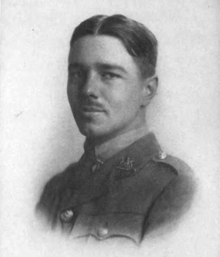¿Evans? Sí, muchas veces bajé
los toscos escalones
de la cocina sombría
con su fuego de leña, donde cantaban grillos
acompañando el silbido de la pava negra,
y entraba así a la fría oscuridad
para ahogarme en la densa marea
de la noche que envolvía las paredes
de su granja austera en lo alto de la loma.
No era la oscuridad que me llenaba los ojos y la boca
lo que me estremecía; tampoco el goteo
de la lluvia como sangre desde el único árbol
torturado por el clima. Era la oscuridad
que anegaba las venas de aquel hombre enfermo
al que dejé varado en la vasta
y solitaria costa de su cama helada.
Ronald
Stuart Thomas, Cardiff
versión © Gerardo Gambolini
versión © Gerardo Gambolini
imagen: St
Hywyn’s Church, Aberdaron, Gales © Martin Baird
Evans
Evans? Yes, many a time
I came down his bare flight
Of stairs into the gaunt kitchen
With its wood fire, where crickets sang
Accompaniment to the black kettle’s
Whine, and so into the cold
Dark to smother in the thick tide
Of night that drifted about the walls
Of his stark farm on the hill ridge.
It was not the dark filling my eyes
And mouth apalled me; not even the drip
Of rain like blood from the one tree
Weather-tortured. It was the dark
Silting the veins of that sick man
I left stranded upon the vast
And lonely shore of his bleak bed.
Y Dios sostuvo en su mano
un globo pequeño. Mira, dijo.
El hijo miró. Lejos,
como a través de agua, vio
una tierra abrasada de intenso
color. La luz ardía
allí; edificios encostrados
arrojaban su sombra: una serpiente
brillante, un río
se desenroscaba, radiante
de lodo.
En
una loma desnuda
un árbol desnudo entristecía
el cielo. Muchos
estiraban hacia él sus brazos flacos
como esperando que un abril ya ido
volviera a sus ramas
cruzadas. El hijo los
observó. Déjame ir allí, dijo.
Ronald Stuart Thomas, Cardiff, Gales, 1913-2000
versión © Gerardo Gambolini
versión © Gerardo Gambolini
The Coming
And God
held in his hand
A small globe. Look, he said.
The son looked. Far off,
As through water, he saw
A scorched land of fierce
Colour. The light burned
There; crusted buildings
Cast their shadows: a bright
Serpent, a river
Uncoiled itself, radiant
With slime.
On a bare
Hill a bare tree saddened
The sky. Many people
Held out their thin arms
To it, as though waiting
For a vanished April
To return to its crossed
Boughs. The son watched
Them. Let me go there, he said.
A small globe. Look, he said.
The son looked. Far off,
As through water, he saw
A scorched land of fierce
Colour. The light burned
There; crusted buildings
Cast their shadows: a bright
Serpent, a river
Uncoiled itself, radiant
With slime.
On a bare
Hill a bare tree saddened
The sky. Many people
Held out their thin arms
To it, as though waiting
For a vanished April
To return to its crossed
Boughs. The son watched
Them. Let me go there, he said.
Algo apartada de la ruta
inmóvil en un gris del siglo pasado
está la capilla, fea, sin atractivo
para que un turista detenga el auto
y la visite. El tráfico pasa
y el río pasa, y lo mismo rápidas
sombras de nubes, y la capilla se hunde
un poco más en la hierba.
Pero aquí una vez, una noche como ésta,
en la oscuridad que envolvía
a sus oyentes, un predicador se prendió fuego
y ardió sin cesar delante de ellos
con una extraña luz para que vieran
el esplendor de las montañas desnudas
a su alrededor y cantaran sus amenes
fervientemente, por poco pero salvados
de un modo en que los hombres no lo están ahora.
Ronald Stuart Thomas, Cardiff, Gales, 1913-2000
versión © Gerardo Gambolini
versión © Gerardo Gambolini
The Chapel
becalmed in a last-century greyness
there is the chapel, ugly, without the appeal
to the tourist to stop his car
and visit it. The traffic goes by
and the river goes by, and quick shadows
of clouds too, and the chapel settles
a little deeper into the grass
But here once on an evening like this,
in the darkness that was about
his hearers, a preacher caught fire,
and burned steadily before them
with a strange light so that they saw
the splendour of the barren mountains
about them and sang their amens
fiercely, narrow but saved
in a way that men are not now.
_Martin+Baird.JPG)








